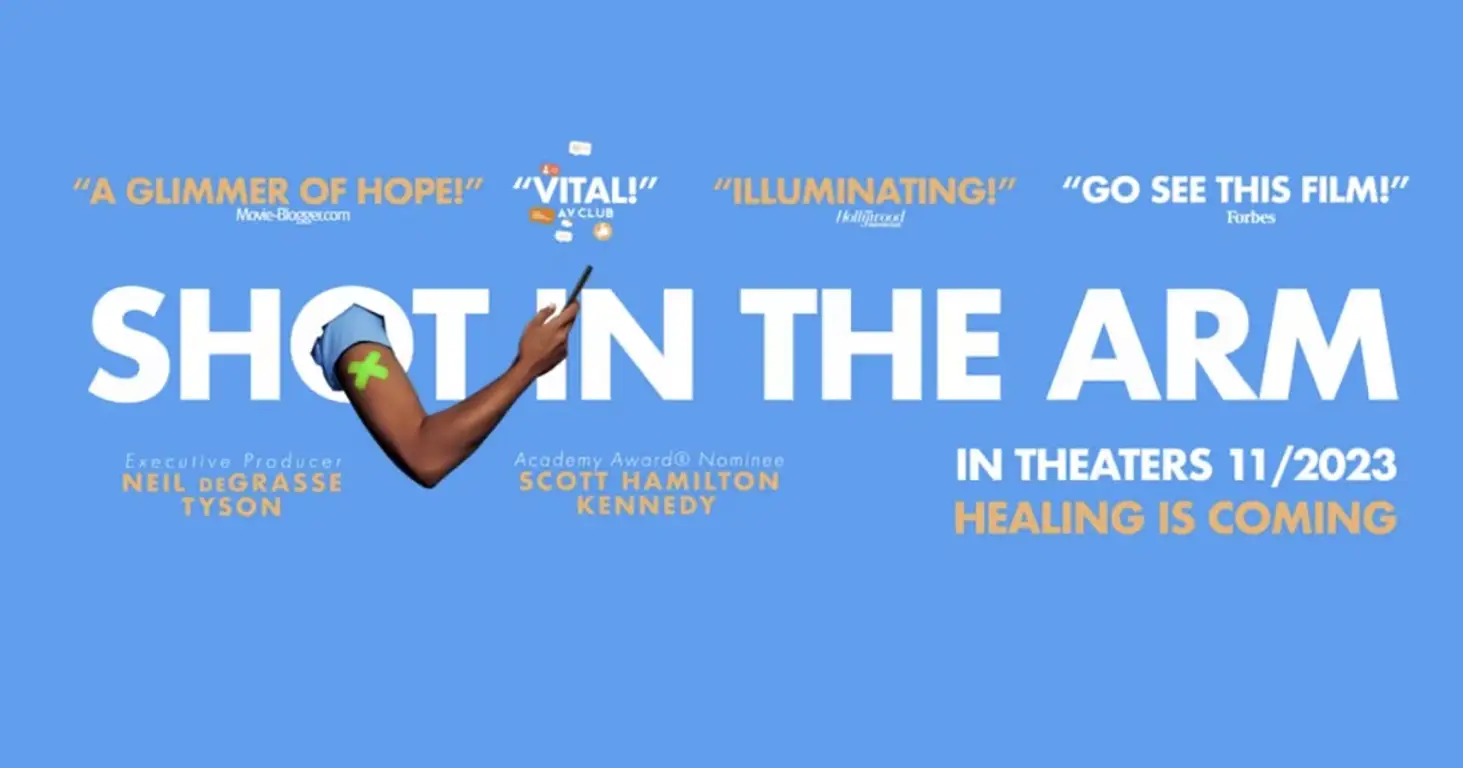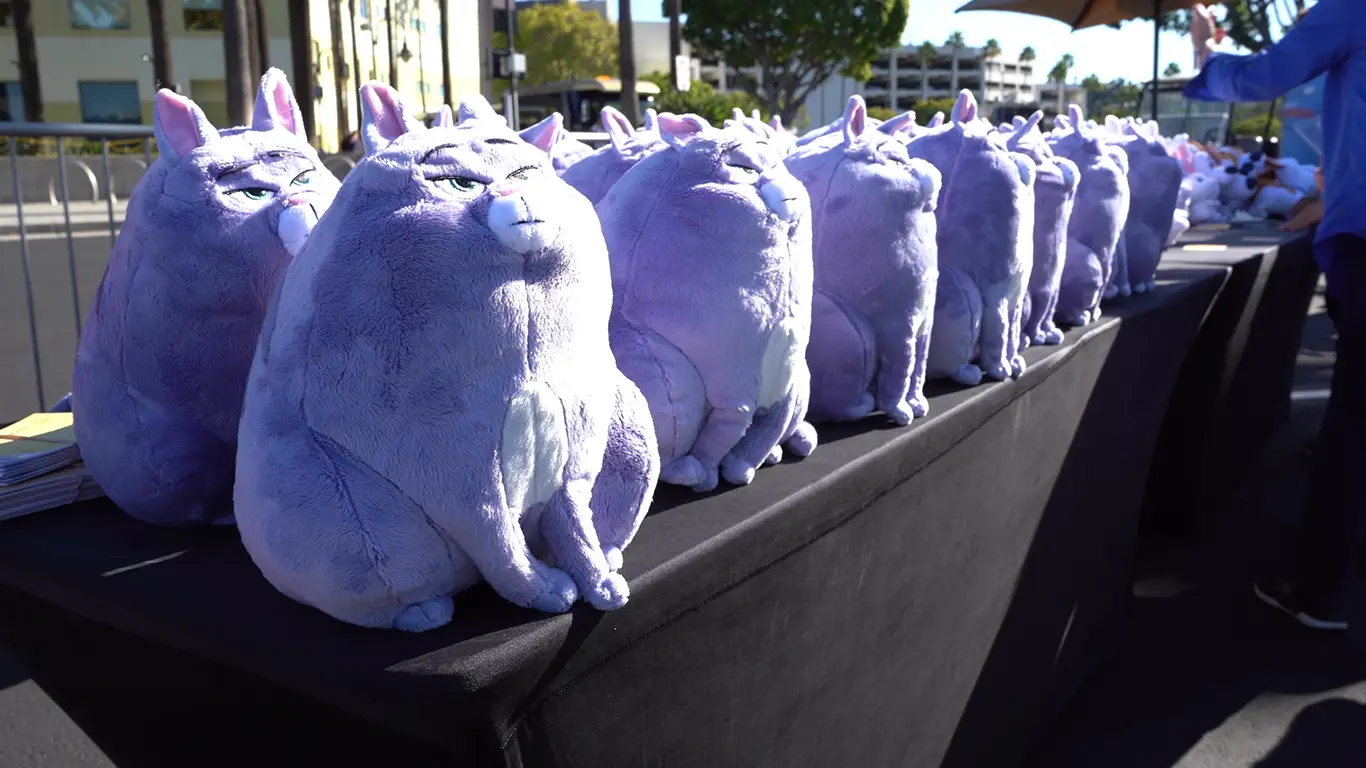Writer and director Scott Hamilton Kennedy delivers an impassioned exploration of the Anti-Vax movement with his documentary Shot In The Arm. Executive produced by Neil deGrasse Tyson, the film takes a look at the anti-vaccination movement and its ecosystem of activists, icons, and charlatans. Kennedy delivers a slickly produced takedown of the scientists and celebrities riding a wave of paranoia to urge their fans not to get a shot, but the doc has a clear message: Anti-Vaxxers are wrong and have been conned by distrust in everything from big government to big pharma. Yet what Shot In The Arm fails to do well enough is present a balanced take on the heated issue.
What began as a look at the measles outbreak in 2019, Shot In The Arm pivots in real time as the world shuts down in 2020 to examine the politicization and consequences of resisting the jab. We see Kennedy and his family as they face lockdown, homeschooling, and remote work. We meet Blima Marcus, a Nurse Practitioner out of New York who began as someone against vaccines to a proponent. We meet the Pediatrician, Vaccinologist, and Author Paul Offit. Offit explains the link between vaccines and autism by relating how Gastroenterologist, Andrew Wakefield held a press conference in London in 1998 where he posed the hypothesis that the measles, mumps, and rubella vaccine caused autism.
The doc puts multiple personalities on blast including Del Bigtree and Robert F. Kennedy Jr. for their exploitation of the situation for profit. In one scathing sequence, Kennedy lets the footage do the talking and shows how Robert F. Kennedy Jr. pounced on the vaccination fears in Samoa by visiting the Prime Minister of the country and riding a wave of panic while sharing his adventures online with his followers. We then cut to Kennedy Jr. sitting down for an interview with the filmmakers and having no recollection of talking with the Prime Minister of Samoa about anything relating to vaccinations. It is in moments like this where the documentary documents, and to great effect I might add.
Nurse Practitioner Marcus is the most compelling subject in the film as she explains her journey from Anti-Vaxxer to one arguing for the use of vaccines. A new mother, and target of those stoking parental fear, she explains how she was terrified that she might harm her newborn by allowing vaccination after reading a book filled with misinformation. She then relates how, during a five-year doctorate study, she was “knee-deep” in research studies, learning how to analyze them to see if they were done ethically, and properly, or if there was a conflict of interest. When she returned to the vaccination debate, she had “A completely different outlook.” Here we have a person who was the target of fear tactics and was in a unique position to have done her extensive research.
Unfortunately, filmmaker Kennedy is much more interested in proving anti-vaccination proponents wrong than he is in presenting a larger, more convincing picture. He paints his subjects in stark contrasts of either enlightened or ignorant. He presents the why of the anti-vaccination movement by painting them as fearful parents, loud-mouthed patriots, or profiteers.
In the end, Shot In The Arm will do little to convince anyone of the safety of vaccines, nor does it present an unbiased document on a divisive issue. This is a documentary that falls more into the Michael Moore category than it does anything from Erroll Morris or Albert and David Maysles. This is a sermon for the choir that is unlikely to reach anyone who isn’t already a convert.




